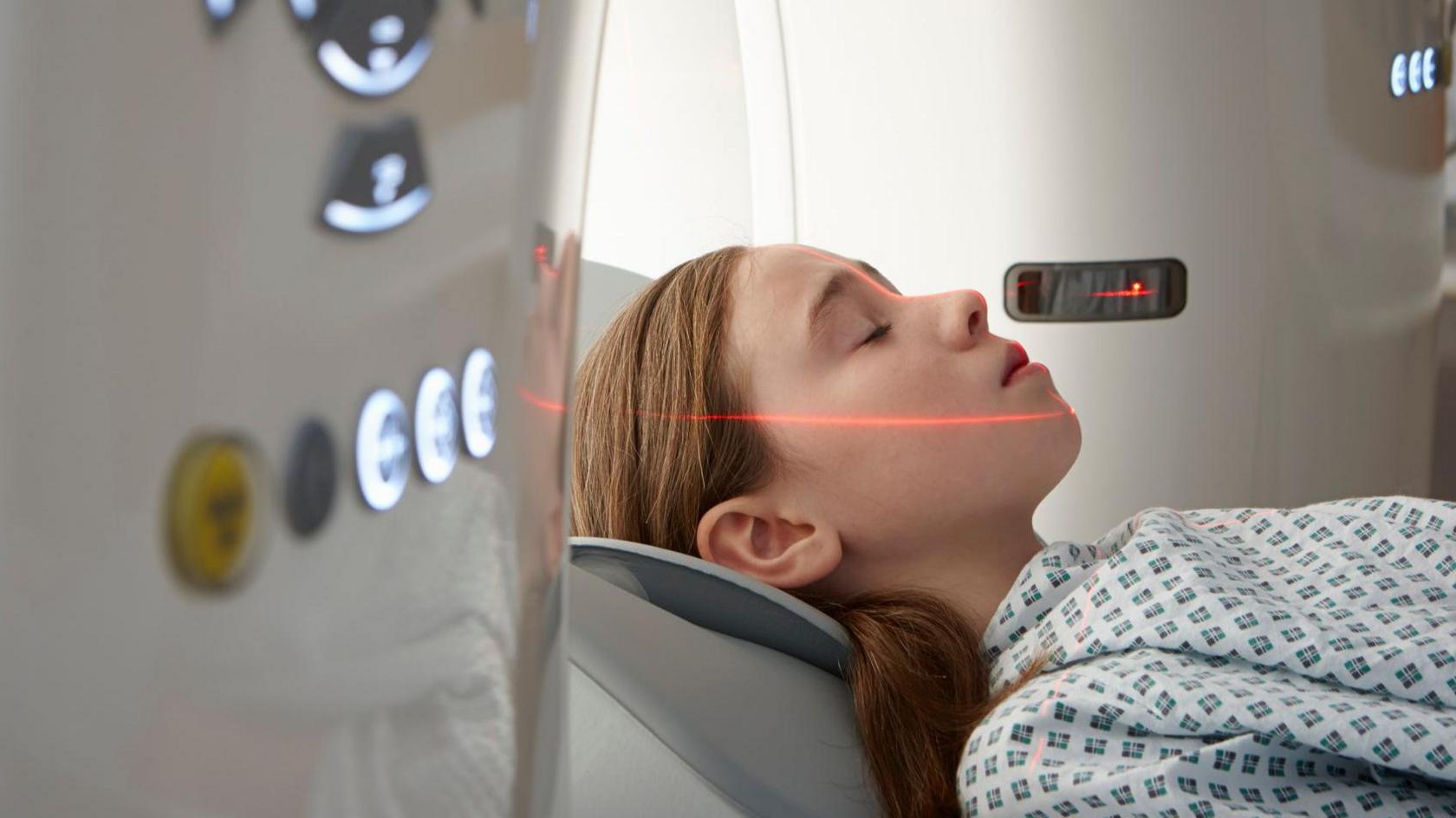AI physio app halves wait list for back pain treatment

Technology that gives back pain patients access to personalised physiotherapy has been described as a "game-changer" for the NHS
- Published
An app that uses artificial intelligence (AI) to provide physiotherapy for people with back pain has cut treatment waiting lists by 55%, according to an NHS trial.
NHS patients in Cambridgeshire and Peterborough were the first in England to take part in a three-month trial with Cambridgeshire Community Services NHS Trust.
The program uses AI to triage, treat and discharge patients and the trust said it allowed about 2,500 hours of clinician time to be diverted to more complex cases,
Jayne Davies, the trust's clinical lead for musculoskeletal (MSK) services, said: "A third of our workload is lower back pain and demand outstrips capacity.
"If rolled out thoughtfully, this could be a game-changer for patients and the NHS.
"Nationally we couldn't train or afford enough staff to meet the rising demand for our services," she added.
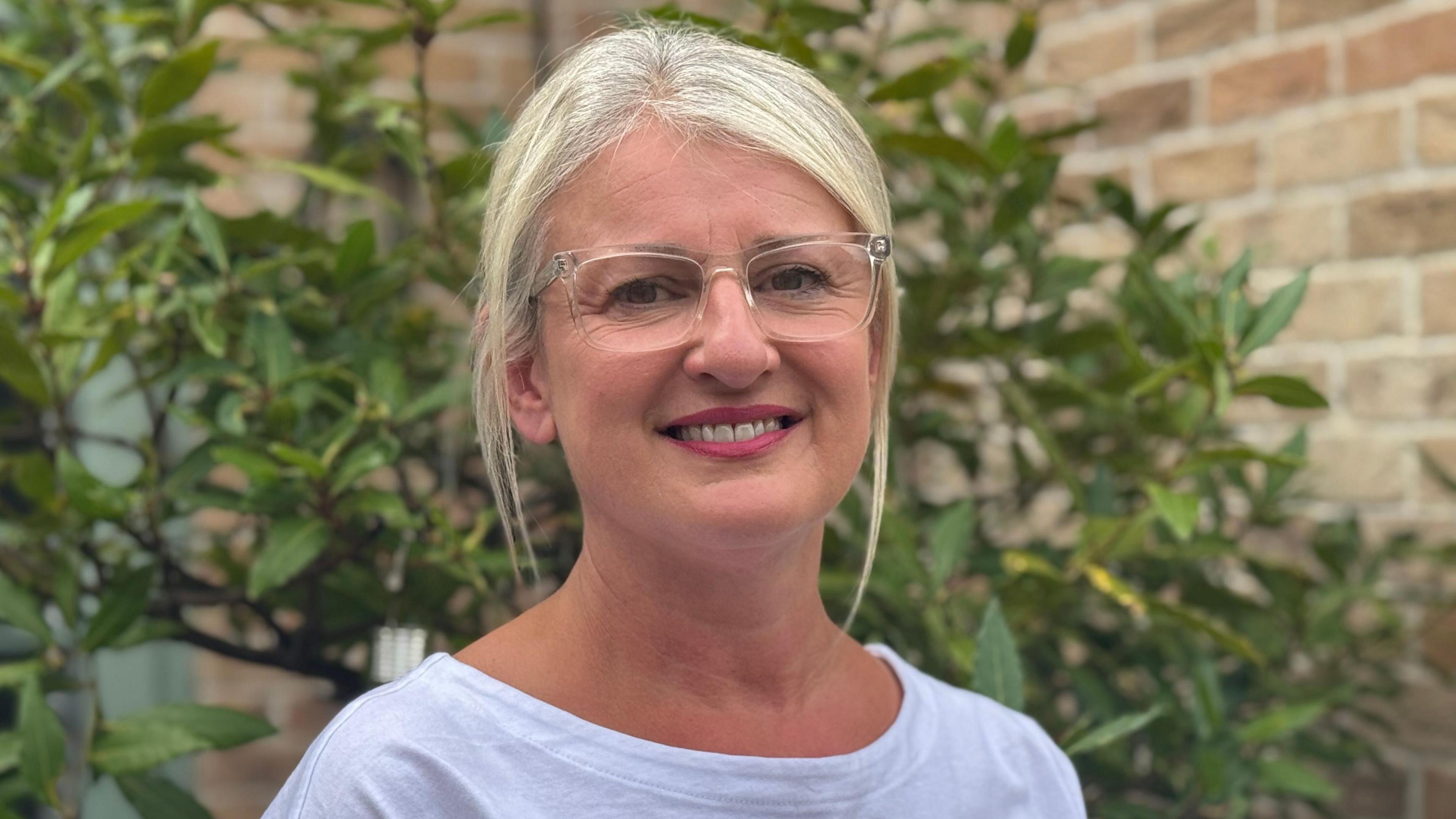
Annys Bossom was initially "disappointed" to be offered the app but found "it really worked"
The app, which was developed by Cambridge-based Flok Health, external, is the first of its kind to be regulated by the Care Quality Commission.
About 80% of adults will experience back pain at some point and MSK disorders were one of the highest causes of work absence, external and disability in the UK.
According to the NHS, waiting times for an appointment with MSK services - which treat muscle, bone and joint problems - is more than 18 weeks.
Annys Bossom from Brampton, Cambridgeshire, was among the 2,500 patients who took part in the trial.
She has a twisted pelvis, hypermobility and has suffered from back pain for 25 years.
"At first I was very disappointed to be offered an app but, once I tried it, I really enjoyed it. It was so easy," she said.
"I've had lots of treatments in the past, but this offered me exercises I'd never seen before and they've really worked.
"Having them demonstrated on the screen was so much more motivating than having them written on a piece of paper - and I could choose when I did them."
Sharon McMahon, a primary school teacher from Hardwick, Cambridgeshire, was unable to work for two weeks when she experienced severe back pain.
She had been waiting for 17 weeks for treatment when the app became available.
"I started my treatment the same day, and was able to get appointments and complete exercises whenever I liked. I was back to normal after a couple of weeks."
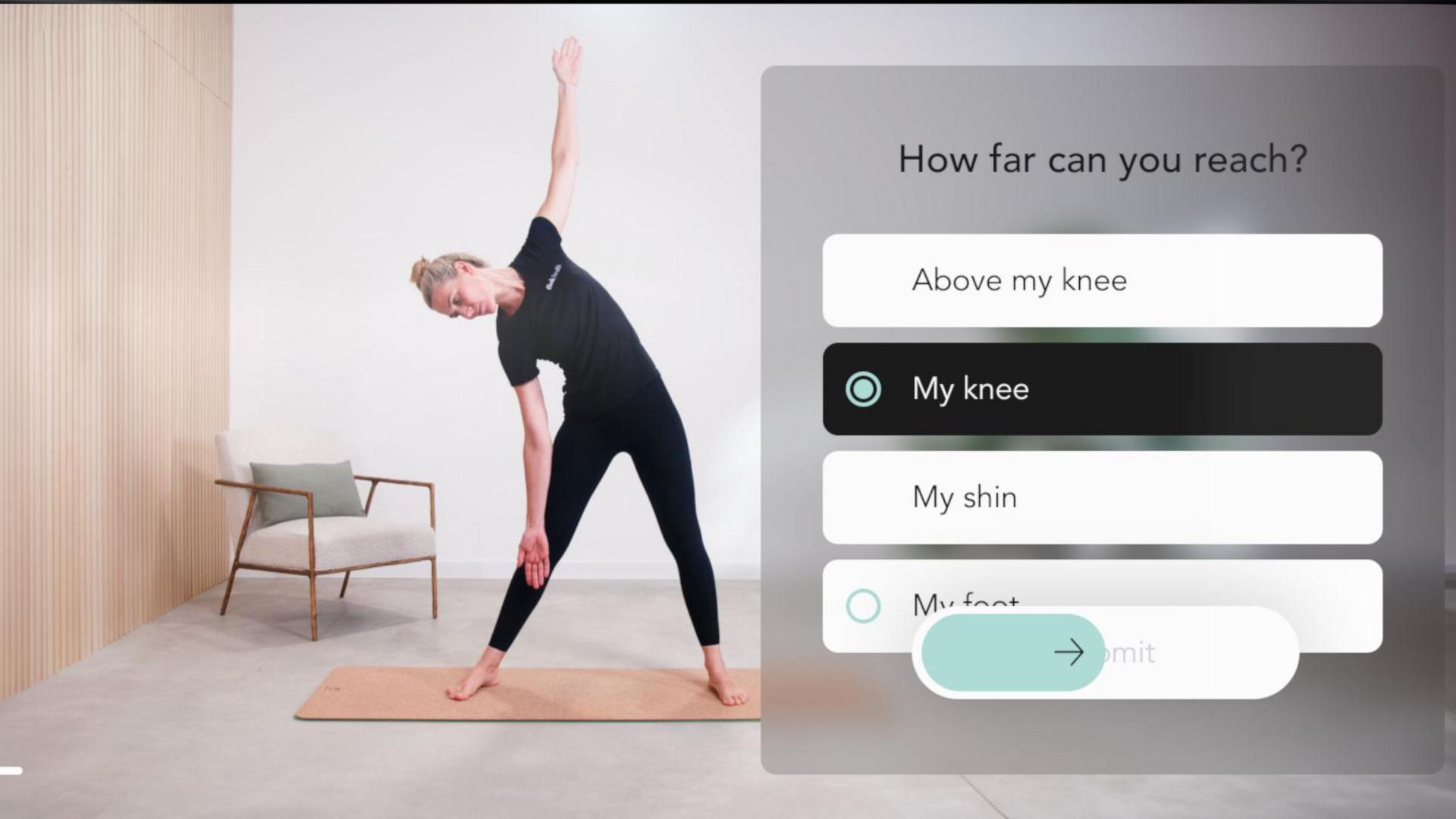
The AI-powered app offers patients access to personalised physiotherapy
The app assesses a patient's MSK pain through a series of questions before recommending a plan of recorded exercises , which are demonstrated on the screen by Kirsty Henderson, a physiotherapist who has worked for 15 years in the NHS and private sector.
MSK patients can refer themselves or be referred by a doctor to Flok's clinic.
Data from the trial in Cambridgeshire and Peterborough showed:
80% of patients reported the app to be "equivalent or 'better" than face-to-face care
98% of patients were assessed, treated and discharged through the digital clinic and 2% requested or needed a face-to-face referral
Each month 856 hours of clinician time were saved
Overall waiting times for MSK services fell from 18 weeks to less than 10 weeks
Waiting lists for back pain treatment fell by 55%
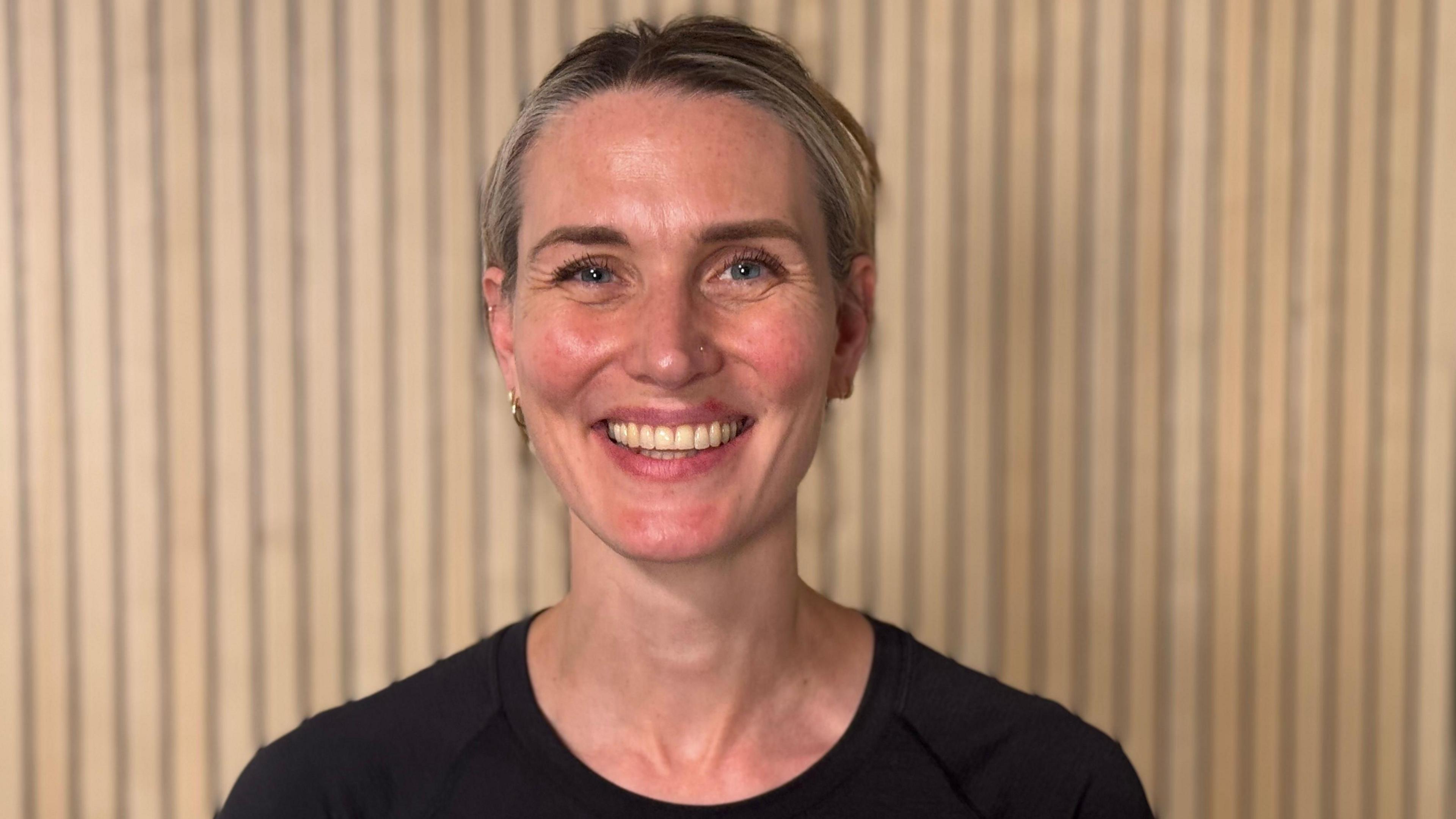
Physiotherapist Kirsty Henderson said she can help thousands of patients each day through the app
As the use of AI in UK healthcare increases, general concerns remain about the protection and quality of the data used to train the models and the need for greater regulation.
The Health Foundation charity found in 2024 that one in six people in the UK still feel that AI will make healthcare worse.
The charity added that if the government wanted to generally pursue technology as a way to transform the health service, more public engagement was needed.
Ms Henderson said she did not think the technology would put physiotherapists out of work.
"There will always be people who need face-to-face care, and I believe this app will give physios the time they need to treat those more complex cases.
"The workload in the NHS was enormous," she said.
Finn Stevenson, the app's co-founder, said he was inspired to create the platform after experiencing MSK treatment delays after he retired from rowing professionally.
"There just aren't enough clinicians to meet demand in a traditional setting. [The app] is like having a video call with one," he said.
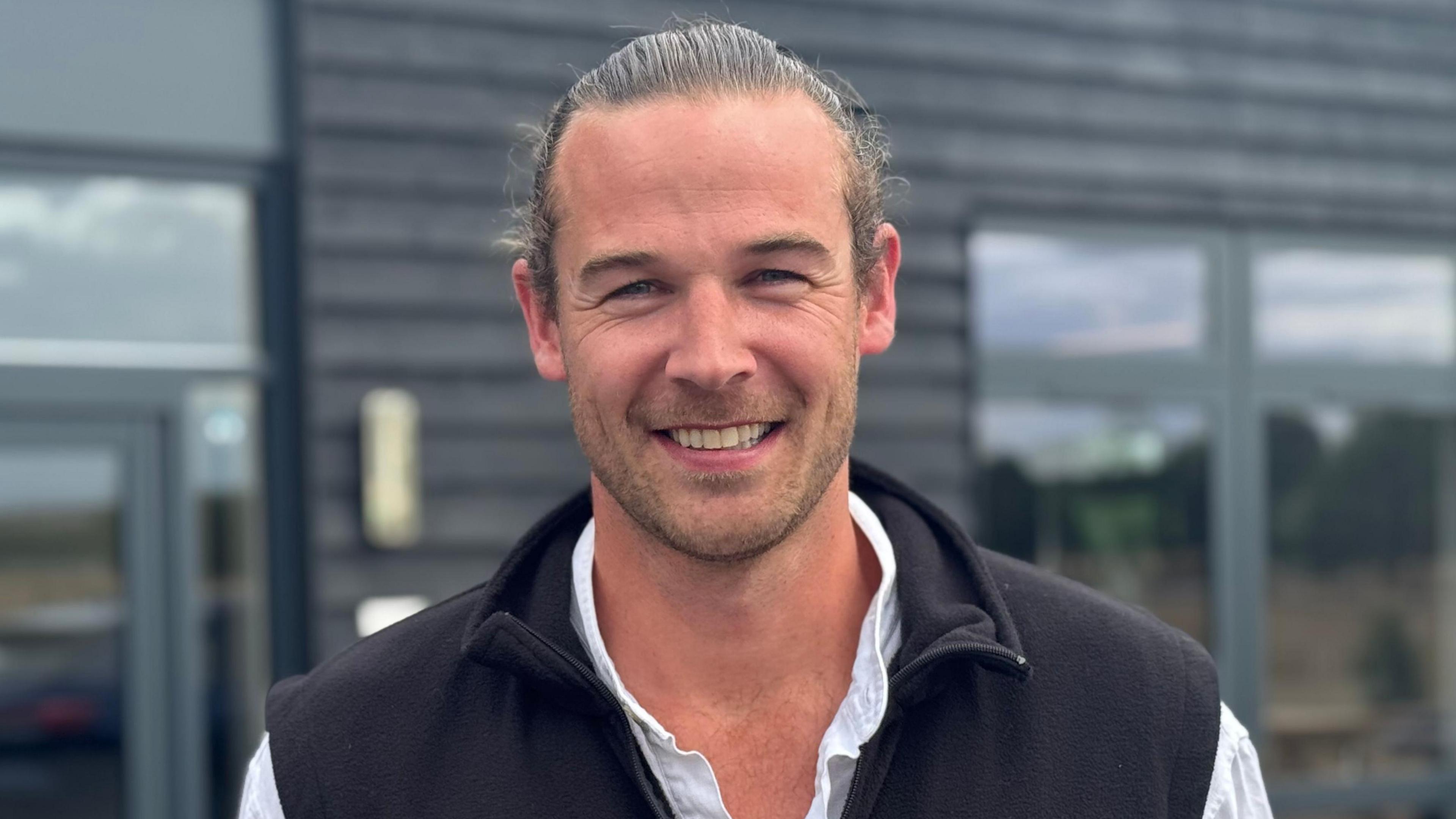
Former rower Finn Stevenson had the idea for the app when he experienced delays accessing MSK treatment
The Chartered Society of Physiotherapy, external accepted that long waiting lists for MSK treatment were a problem.
Ash James, the society's director of practice and development, said: "There's a crisis in physiotherapy. The demand is high but the NHS in many areas has frozen recruitment.
"Back pain is something that, with some support, most people can manage by themselves; so technology like this can really help them get the treatment they need quickly.
"AI can help in lots of ways but the technology must be developed alongside physiotherapists, it must be safe and there must be human oversight."
Flok Health said that if a patient gives answers that were confusing or alarming, a physiotherapist will be alerted and call the patient and physios and patients can message each other.
"At the beginning, I wasn't sure a programme could understand the nuances in the way people describe things - but it does," said Ms Henderson.
She added: "It's still really important that we're there to step in where we suspect more urgent or serious problems."
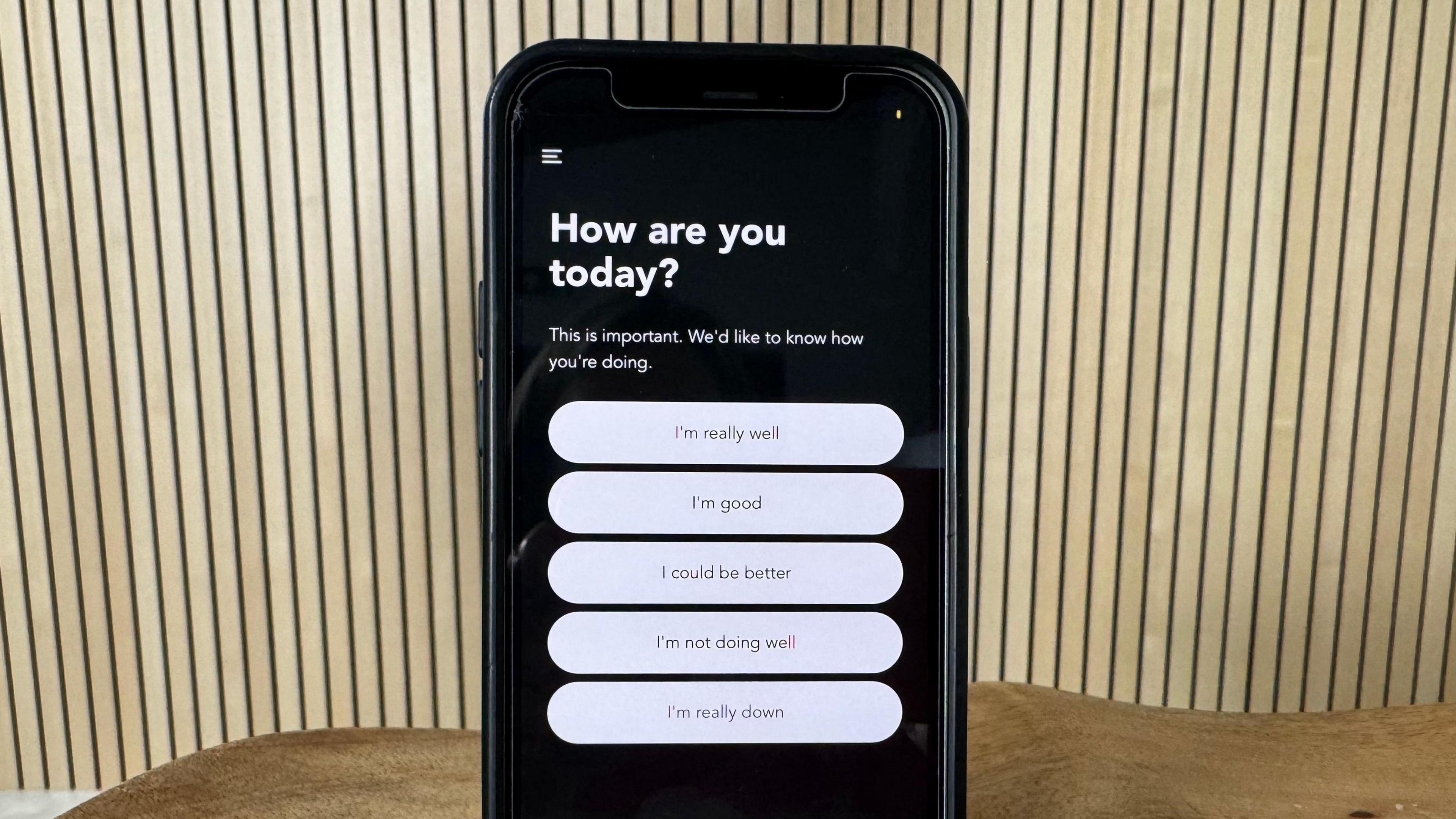
The app triages the patient by using AI to analyse their response to questions about their pain
Get in touch
Do you have a story suggestion for Cambridgeshire?
Follow Cambridgeshire news on BBC Sounds, Facebook, external, Instagram, external and X, external.
- Published18 December 2024

- Published1 November 2023
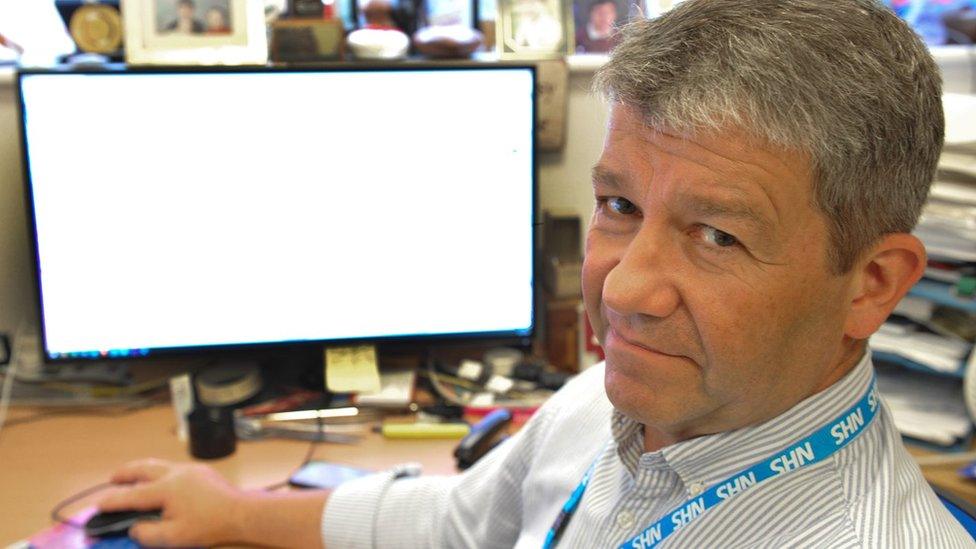
- Published17 January
